Andrew Lynch
As schools across the country adapt to the ‘new normal’ with some students returning following the easing of lockdown, the debate continues to rage about the potential long-term impact of school closures on children’s education.
With no definitive plan as to when or how children of all ages will return to full-time schooling, teachers and families continue to be faced with increased uncertainty.
To better understand the current mood up and down the UK, we surveyed 1,016 teachers to gauge their opinions on a variety of subjects, ranging from how the Government has handled the deepening education crisis, to what measures they believe can be implemented to help children get back up to speed.
When asked how they thought the UK Government had handled the education system during the pandemic, 3 in 5 teachers said that they had dealt with the situation badly, of this segment, almost a quarter (24%) saying it had been handled very badly.
Just 4% of teachers felt that the government had dealt with the education system very well during the crisis.
In spite of this, three-quarters of teachers surveyed (75%) agreed with the strategy to delay the reopening of schools, with almost half (47%) saying that they strongly agreed with the approach.
Despite the general negativity towards the Government’s handling of the crisis, 70% of teachers believe that all schools will reopen in September.
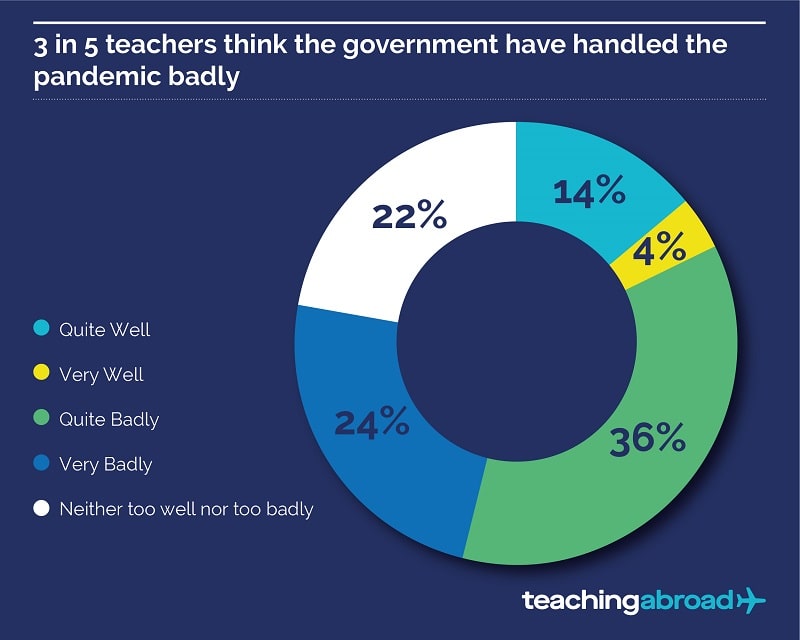
In a further blow to the Government’s new proposals, only 11% of teachers believe that social distancing measures within schools will work, with an overwhelming majority (89%) saying that they didn’t think the measures were viable within the school environment.
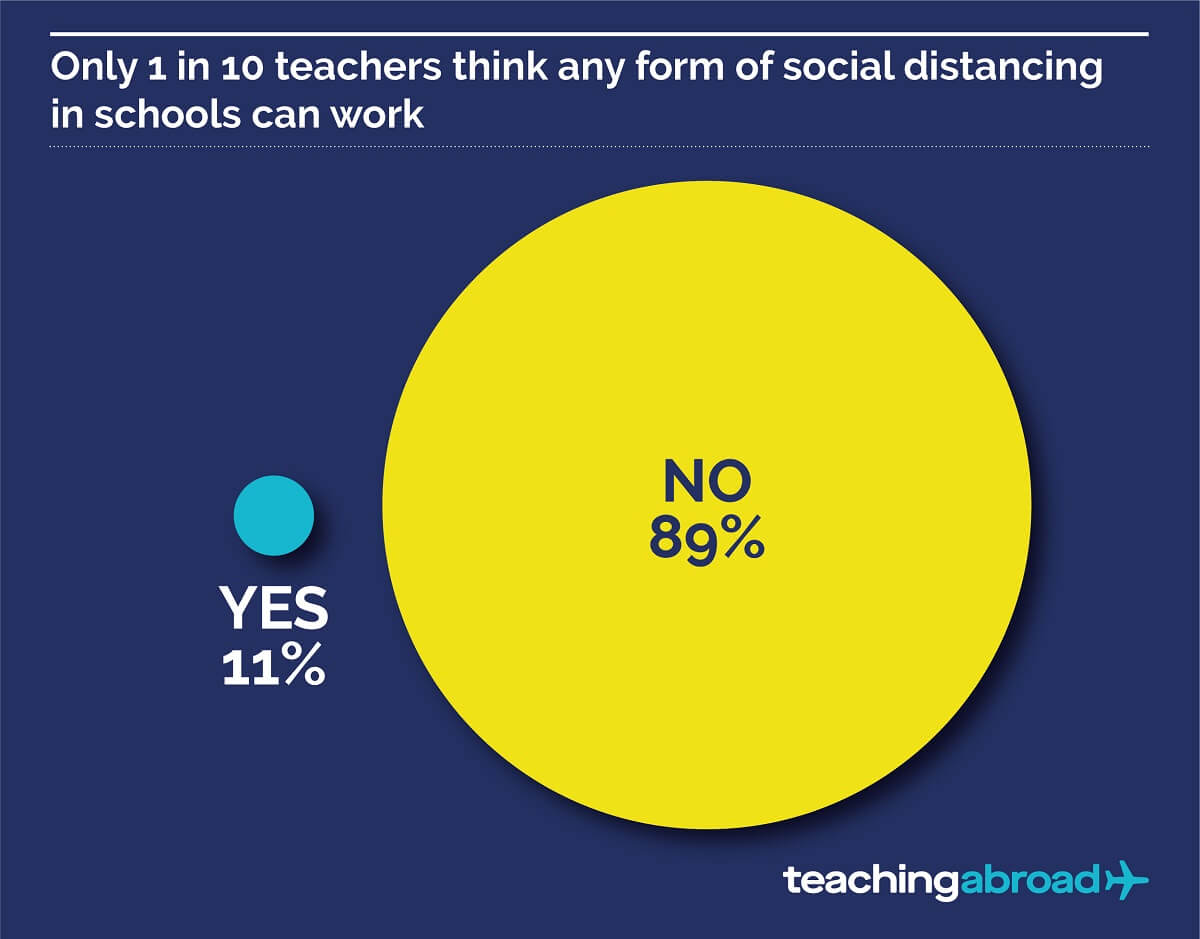
As families have adapted to the realities of homeschooling, a staggering 91% of teachers claim that they are concerned about the potential for growing disparities between students from disadvantaged backgrounds, compared to those in more privileged positions with access to private tutors etc.
When asked if they felt that the UK Government’s handling of the education system during the pandemic put students at a disadvantage compared to those in other countries, 57% believed that it did, while 43% did not think it would have an adverse effect on students’ prospects in the long-term.
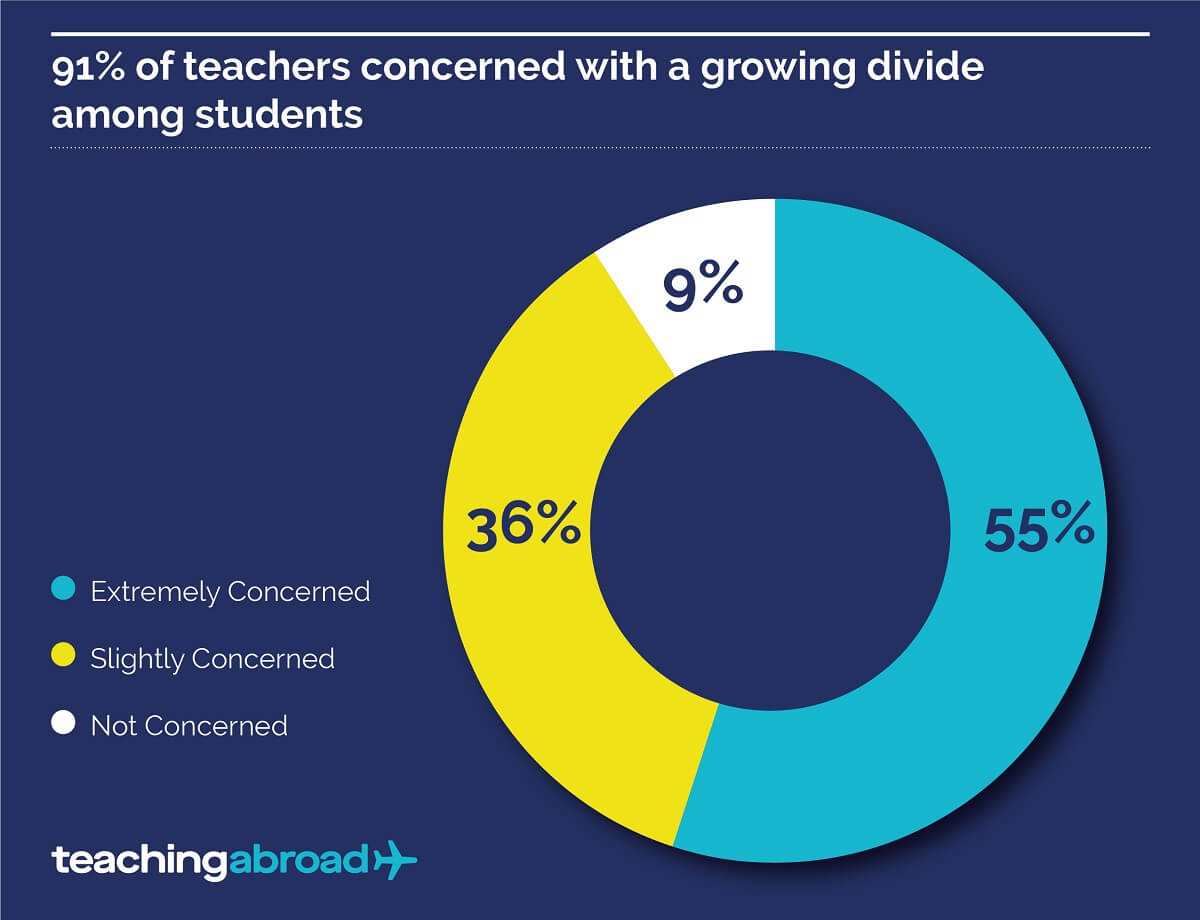
In terms of which school year groups they felt would be most adversely affected by the lockdown, teachers highlighted a clear trend towards those age groups in a transitional period of their school lives, with Year 11 (58.3%), Year 10 (58%) and Year 6 (51.7%) being referenced the most. This would suggest that teachers believe that the pandemic will adversely affect those students in the midst of GCSE and A-Level exam preparations, or those about to move into secondary education.
Reception (43.2%) and Year 1 (43.4%) also received high figures of concern, aligning with the fears that those just starting out at school are in danger of falling behind, or suffering from the negative effects of not being at school when they are at a crucial phase of cognitive development.
.jpg)
On average, teachers believe that 38% of students will never fully catch-up due to Government handling of COVID-19. Only 3.6% of teachers felt that all students would be able to catch up with their studies.
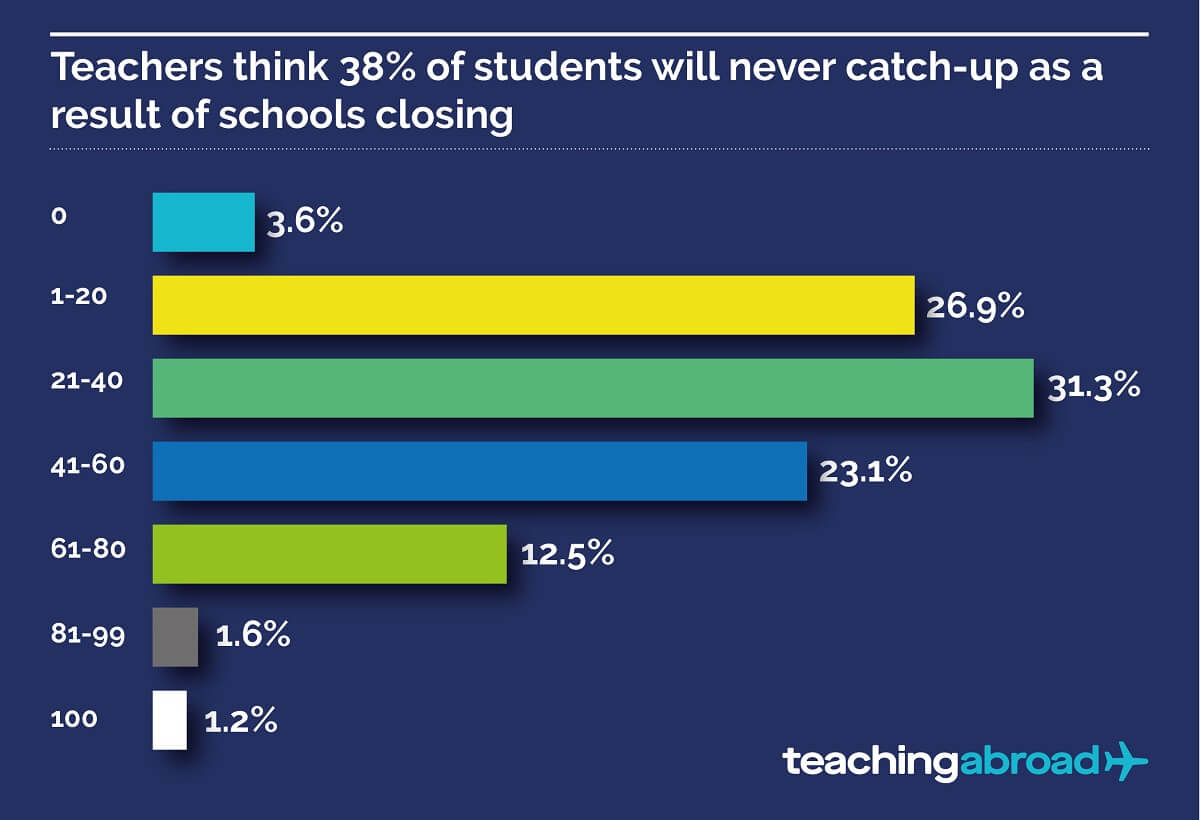
When it comes to the methods and solutions that teachers believe should be implemented to help students adjust and catch up on months of missed education, a range of different methods were suggested, from schooling six days a week to putting more onus on parents to support teachers with their workload.
The majority of teachers (71%), however, believe that the simplest way to support children is to provide free use of educational apps and resources. More than half (58%) feel that more online classes will also help students to catch up.
Only 1 in 5 teachers (21%) were in support of a shorter school holiday over the summer and just under 1 in 7 (14%) felt that more homework was the best solution.
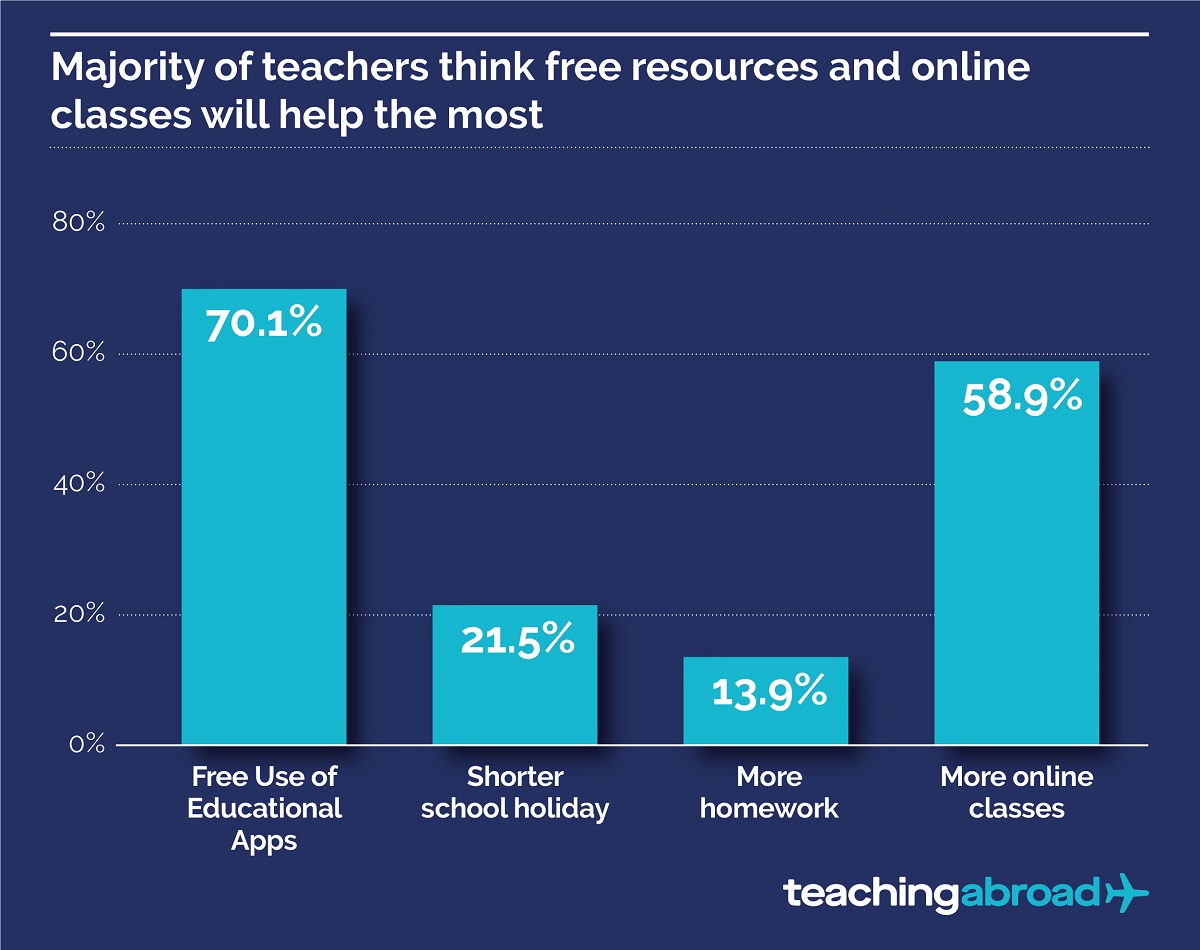
To conduct our study, we surveyed 1,016 teachers from both primary and secondary schools across the UK between 13th June 2020 to 18th June 2020.
Respondents were asked a range of questions in relation to the reopening of UK schools.